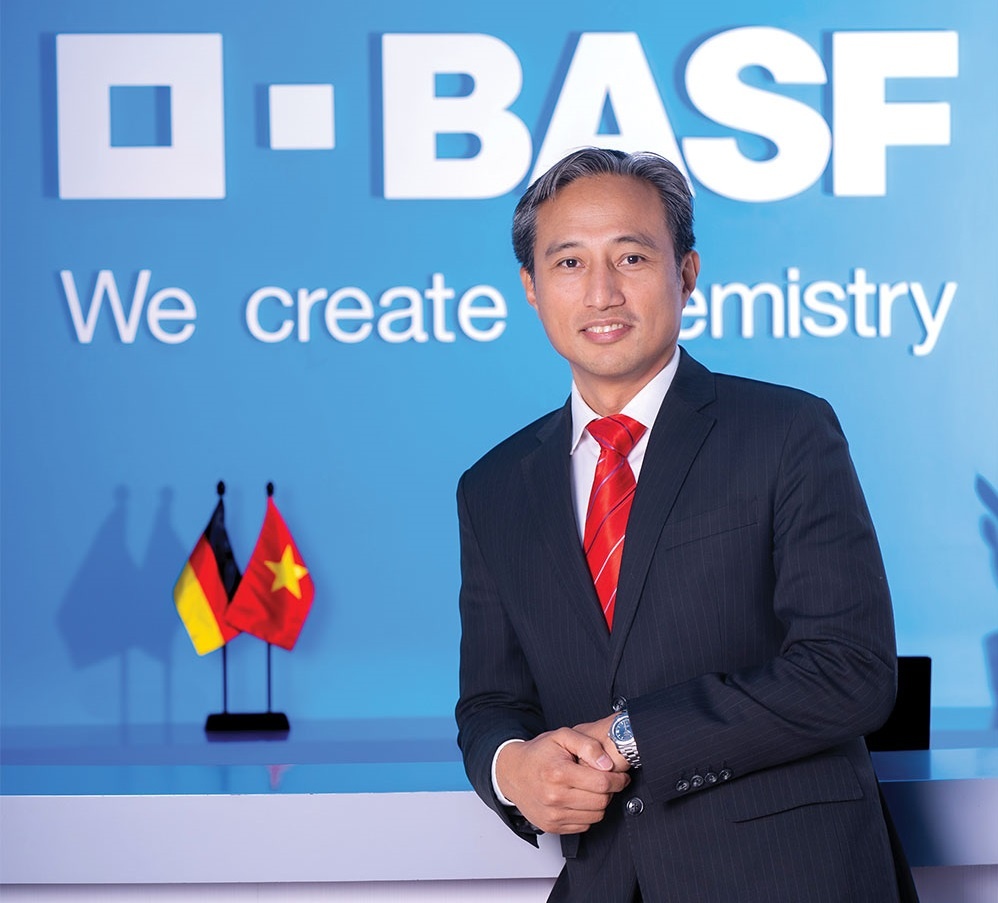BASF Vietnam commits to sustainable funding strategy
The pandemic and geopolitical tensions have caused supply chain issues for Vietnamese manufacturers. How have these impacted BASF?
 |
| CEO Erick Contreras |
BASF has been negatively affected by the increased costs of natural gas and other raw materials, especially in Europe. We have also experienced supply chain disruption and logistic issues, impacting raw material supplies and delivery timelines to our customers.
The price surge due to inflation and currency exchange has impacted our customer affordability and price acceptance, leading to reduced demand and consumption, especially for export, for many Vietnamese manufacturers.
We will keep monitoring the situation and work closely with our customers and partners across the value chain to ensure business continuity with minimal disruptions to their operations and businesses.
How did these changes affect BASF’s business and commitments to Vietnam, and what has it done to respond to those changes?
Despite all these developments, global and local economies still require reliable and innovative products and solutions to fuel different growing sectors as well as provide safe and nutritious food to the growing population while minimising negative impacts on people and the environment.
In response to those changes, we have continued to work closely with our customers in many sectors to offer the right solutions at the right time despite the supply chain issues. With our global production footprint, we are able to support our Vietnamese customers with alternative supplies from other regions and local stock from both BASF Vietnam and our local distributors.
With our strong balance sheet and access to capital, we are also able to support our local customers, who are having difficulties in accessing bank loans with more flexible payment terms.
Vietnam strives to remain a friendly destination for international investors. Does BASF plan to expand investment here in the near future?
Certainly. Vietnam is one of our major markets in ASEAN and an increasingly attractive destination for foreign investors in many aspects with a range of trade agreements and sustainability commitments, a young and talented workforce, and favourable government regulations and support. We will continue investing in the portfolio of sustainable innovations in various industries, including nutrition and agriculture, footwear, textiles, and e-mobility to help our customers become more successful and better equipped to supply both local and export markets.
We will also further invest in our people by offering them room to grow through different training, mentoring and real-life projects to best utilise their talents while preparing them with future-proof skills and knowledge. We also continue to create a diverse and inclusive working environment that promotes opportunities for everyone from different backgrounds, genders, and experiences.
Finally, further social engagement with a focus on education development through different initiatives such as BASF Kids’ Lab and BASF Virtual Lab. School renovation is another pillar of our investment strategy to help Vietnam prepare for the future success of the next generation.
What is the development strategy for BASF Vietnam for the rest of the decade?
We want to create a more sustainable future here in Vietnam, with and for our customers, partners, employees, and communities, through innovations and partnerships. We want to further enhance our customer focus by understanding them better, responding to them faster and offering them the right solutions at the right time.
In order to do this, we will expand our sustainability solutions with many more innovative products and technologies. We will pursue partnerships with key customers, local authorities, and academia to help the country address sustainability, social, and market demands.
BASF Vietnam will also invest in a wide range of new tools and platforms to catch up with the fast-growing digitalisation, including a new SAP system and e-commerce tools. Lastly, we also continue cultivating a winning team by developing existing employees while hiring new talents and experts from key industries as well as relevant universities.
Vietnam is pushing investment in clean and organic agriculture to boost export value and promote sustainability. How is BASF’s competitiveness in this sector and how can it make more of an impact?
We have a lot to offer Vietnamese farmers including innovative products and digital solutions for major domestic and export crops – namely rice, fruits, and vegetables – to help them improve plant health, protect crops from major diseases, and improve productivity and profitability. We also help to meet technical barriers of major markets in terms of health and safety, as well as quality.
We also offer a wide selection of products and solutions for many other sectors, including nutrition, care chemicals, automotives, e-mobility, renewable energy, and construction. We also offer battery materials for e-vehicles and coating solutions that provide long-lasting protection from extreme weathering impacts for wind turbines, helping the country accelerate e-mobility and renewable energy development.
Vietnam is showing its strong commitment to sustainability and we are confident with the right chemistry, we can help to soon make this a reality.
What the stars mean:
★ Poor ★ ★ Promising ★★★ Good ★★★★ Very good ★★★★★ Exceptional
Related Contents
Latest News
More News
- Vietnam forest protection initiative launched (February 07, 2026 | 09:00)
- China buys $1.5bn of Vietnam farm produce in early 2026 (February 06, 2026 | 20:00)
- Vietnam-South Africa strategic partnership boosts business links (February 06, 2026 | 13:28)
- Mondelez Kinh Do renews the spirit of togetherness (February 06, 2026 | 09:35)
- Seafood exports rise in January (February 05, 2026 | 17:31)
- Accelerating digitalisation of air traffic services in Vietnam (February 05, 2026 | 17:30)
- Ekko raises $4.2 million to improve employee retention and financial wellbeing (February 05, 2026 | 17:28)
- Dassault Systèmes and Nvidia to build platform powering virtual twins (February 04, 2026 | 08:00)
- The PAN Group acquires $56 million in after-tax profit in 2025 (February 03, 2026 | 13:06)
- Young entrepreneurs community to accelerate admin reform (February 03, 2026 | 13:04)

 Tag:
Tag:




















 Mobile Version
Mobile Version